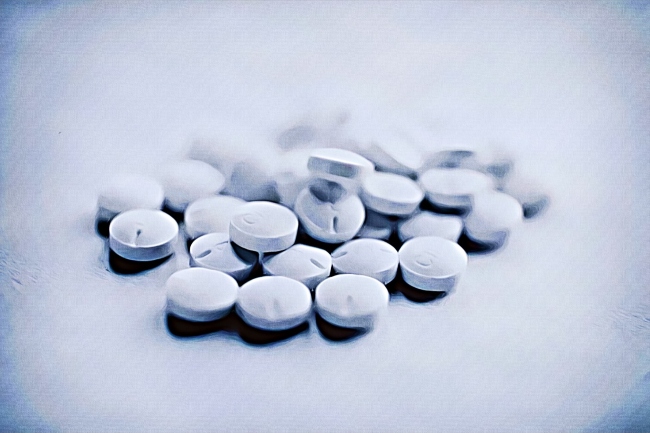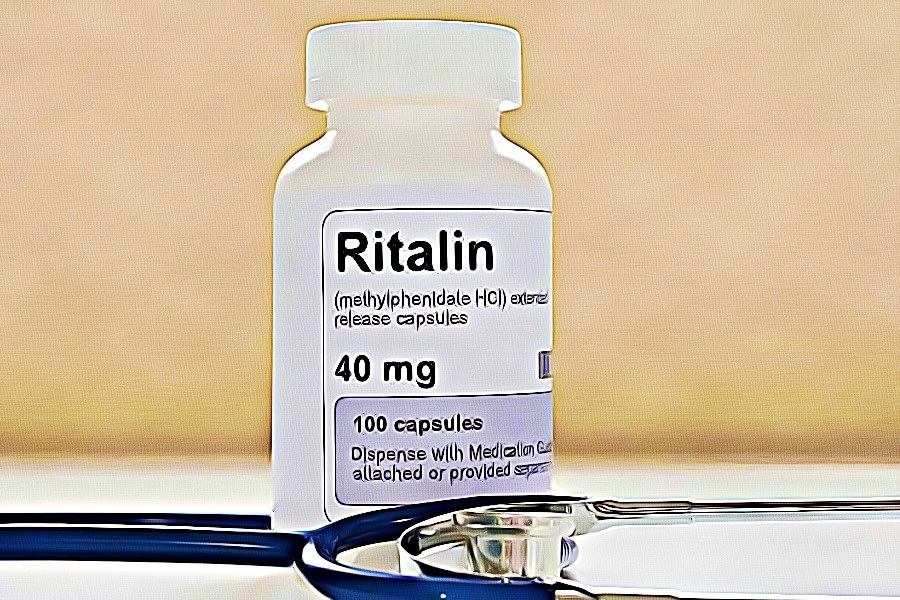Ritalin is used to treat Attention Deficit Hyperactivity Disorder (ADHD) and narcolepsy. It targets certain areas in the brain and central nervous system responsible for controlling hyperactivity and impulse control. This drug is available under brand names such as Concerta, Methylin, and Metadate.
Ritalin used to be only available in an immediate-release form, but now it is also available in two other forms: slow-release and extended-release. Concerta is an extended-release form of Ritalin, with methylphenidate as its active ingredient. It has been approved by the FDA to treat ADHD.
How Long Does the Effect of Ritalin Last?
The answer to this depends on a few factors, including the dosage, the individual’s metabolism, and the severity of the condition. Generally speaking, the effects of Ritalin can last anywhere from four to twelve hours. For those with ADHD, the effects may last longer because the medication is taken on a regular basis.
When taken as prescribed, Ritalin can help improve focus and concentration, allowing individuals to manage their symptoms better. However, you must note that the medication does not cure ADHD and should only be used as part of a comprehensive treatment plan.
In addition to taking the medication as prescribed, individuals should also be mindful of their diet and lifestyle. Eating a healthy, balanced diet and getting regular exercise can help maximize the effects of Ritalin. Additionally, avoiding caffeine and other stimulants can help ensure that the effects of the medication are not diminished.
How Long Is Ritalin Detectable in Your System
Ritalin is detectable in the body for a period of time, depending on a variety of factors such as the amount taken, frequency of use, and individual metabolism. In general, Ritalin can be detected in urine for up to 72 hours after taking the last dose and in blood for up to 24 hours after the last dose. However, the drug can remain in saliva for up to two days and in your hair for up to 90 days.
Ritalin Half-Life
Ritalin has a relatively short half-life of about 3 to 4 hours, which means that it is metabolized and eliminated from the body relatively quickly.
The half-life of a drug refers to how much time that passes for half of the drug to be eliminated from the body. The Ritalin half-life is important to consider when taking the medication because it affects how the medication works and how long it will be in the body.
The Ritalin half-life is affected by several factors, such as age, weight, and other medications. In children, the half-life of Ritalin is generally shorter than in adults. This is because children have a faster metabolism than adults, which means they metabolize and eliminate medications faster. The half-life of Ritalin is also affected by other drugs that are taken with it. For example, taking Ritalin with an antidepressant can increase its half-life.
The Ritalin half-life is also affected by how the medication is taken. Taking Ritalin orally results in a longer half-life than in a patch or injection. The half-life of Ritalin also depends on whether it is taken in an immediate-release or extended-release form. Immediate-release Ritalin has a shorter half-life than extended-release Ritalin.
It is essential to understand the Ritalin half-life in order to make sure that the medication is taken correctly and that it has the desired effects. The half-life of Ritalin can be affected by several factors, so it is essential to talk to a doctor or pharmacist about how to take the medication correctly.

Factors That Impact How Long Methylphenidate Stays in Your Body
One of the main factors that can affect how long methylphenidate stays in your body is your metabolism. People with faster metabolisms are more likely to clear the medication from their system more quickly, while those with slower metabolisms may take longer. Age is also a factor, as younger people metabolize medications more quickly than older people.
Other factors that can affect the duration of methylphenidate in your body include your health, weight, and the dose of the medication you are taking. People who are overweight may take longer to metabolize the drug, while those who are in good health may be able to clear it faster. Higher doses of methylphenidate may take longer than lower doses to clear from your system.
Finally, your liver and kidney function can also affect how long methylphenidate stays in your body. If your liver or kidneys aren’t functioning correctly, it can take longer for the medication to be eliminated from your system.
It is important to understand how long methylphenidate stays in your body and the factors that can affect its duration. This can help you make informed decisions about the medication and ensure you get the most out of it. If you have questions or concerns, you should speak with your doctor or healthcare provider.
Side Effects of Ritalin
Ritalin is a medication used to treat attention deficit hyperactivity disorder (ADHD) and narcolepsy. It is a stimulant that works by increasing the dopamine and norepinephrine levels in the brain. While Ritalin can be an effective treatment for ADHD and narcolepsy, it can also have some unpleasant side effects.
The most common side effects of Ritalin are headaches, nausea, stomachaches, loss of appetite, difficulty sleeping, and irritability. Other side effects include weight loss, dizziness, dry mouth, and increased blood pressure. In rare cases, Ritalin may cause more severe side effects, such as an irregular heartbeat, chest pain, and difficulty breathing.
Ritalin can also cause psychological side effects, such as anxiety, depression, and mood swings. It can also cause changes in behavior, including aggression, impulsivity, and hyperactivity. Long-term use of Ritalin can lead to addiction and dependence.
If you are taking Ritalin, it is crucial to speak to your doctor about any side effects you experience. Your doctor may be able to adjust your dosage or switch to a different medication. It is also important to know the potential for addiction and dependence. If you think you or a loved one may be addicted to Ritalin, talk to your doctor about the best course of action.
Is Ritalin Addictive?
The debate over whether Ritalin is addictive has been ongoing for many years, and the answer is not simple. Ritalin is a stimulant medication that is prescribed to treat Attention Deficit Hyperactivity Disorder (ADHD). It is a central nervous system stimulant, and its effects are similar to those of amphetamines.
Ritalin is effective in treating ADHD symptoms, but it can also be abused and lead to addiction. People who take Ritalin for non-medical reasons often do so to increase alertness, stay awake, or improve performance in activities such as studying or sports.
The effects of Ritalin are short-lived and can lead to a “crash” when the effects wear off. This can lead to people taking more of the drug to stay alert, and eventually, they may become dependent on it.
In addition to physical dependence, people may develop a psychological addiction to Ritalin. This is characterized by cravings for the drug, preoccupation with obtaining and using it, and a strong desire to continue using it even when it is causing negative consequences. People may also become tolerant to the drug, which means they need more of it to achieve the same effects.
The most common side effects of Ritalin are insomnia, dry mouth, headache, and loss of appetite. Other serious side effects can include heart problems, liver damage, and psychosis. Long-term use of Ritalin can also lead to depression, anxiety, and mood swings.
The bottom line is that Ritalin can be addictive, but it is important to remember that not everyone who takes it will become addicted. It is important to talk to your doctor about any concerns you may have about Ritalin use and addiction and to follow their instructions closely.
Conclusion
Ritalin can last anywhere from four to twelve hours, depending on the dosage and whether it is taken as an immediate-release or extended-release formulation. Ritalin is used to treat Attention Deficit Hyperactivity Disorder (ADHD) in children and adults, and the drug’s effects typically last longer in those with ADHD than in those without it. It is vital to take Ritalin as prescribed to maximize its effectiveness and minimize any potential side effects. If you have questions about how long Ritalin lasts or about addiction to Ritalin, it is best to consult your doctor.

